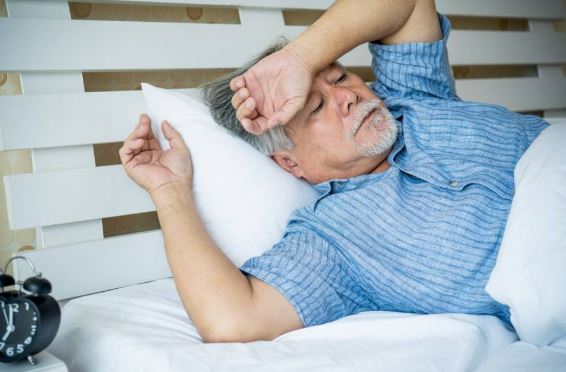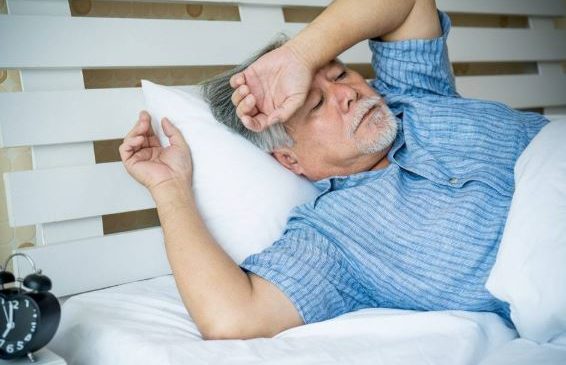Do you notice that your elderly parent or family member is having trouble sleeping? How do you deal with it? What should you do to help? Below are some insight into what causes the sleep problems and what you can do.
Sleep Problems in the Elderly
Aging naturally brings changes in our sleep patterns. How we sleep when we were younger may be so much different to how we sleep today. And for the elderly, they may also experience many changes in their body and mind that can cause sleep problems.

This said, if you notice your elderly family member having difficulty going to sleep or sleeping soundly, then you have to find out the cause so that you can help improve things.
Causes of Sleep Problems in the Elderly
1. Sleep problems caused by underlying medical conditions. Their sleep problems may be a symptom of an underlying health concern. Some of these health conditions that can affect sleep are:
- heart and lung conditions that affect breathing, especially at night (COPD and heart failure, for example)
- GERD or gastroesophageal reflux disease, which causes heartburn
- osteoarthritis that causes painful joints
- an enlarged prostate or an overactive bladder that causes frequent nighttime urination
- depression and anxiety that causes mood problems
- neurodegenerative disorders such as Parkinson’s and Alzheimer’s
- side effects of certain medication
2. Sleep-related Breathing Disorders. This includes sleep apnea and snoring. This involves how people breathe while sleeping, and can also be a problem for elderly people.
3. Restless Leg Syndrome. Also known as RLS, this is a condition prevalent in elderly people. This causes sensations of crawling insects, itching, or general restlessness as a person is falling asleep. While the exact cause of this is till unknown, this is a condition that is not linked to neurodegeneration.
4. Periodic Limb Movements of Sleep (PLMS). This is a condition that triggers sudden, intermittent movements while a person is sleeping. It usually happens on the legs, knees, toes, ankles or hips.
5. Insomnia. This could perhaps be one of the most common sleep problems in the elderly. It’s characterized by having difficulty falling asleep and staying asleep. This may be due to anxiety, depression, subpar quality of life, fatigue, stress, cognitive decline, and many other conditions.
It is important to keep note and to understand what causes your elderly loved ones’ sleep problems. Consult with a physician for help.

Recent Comments